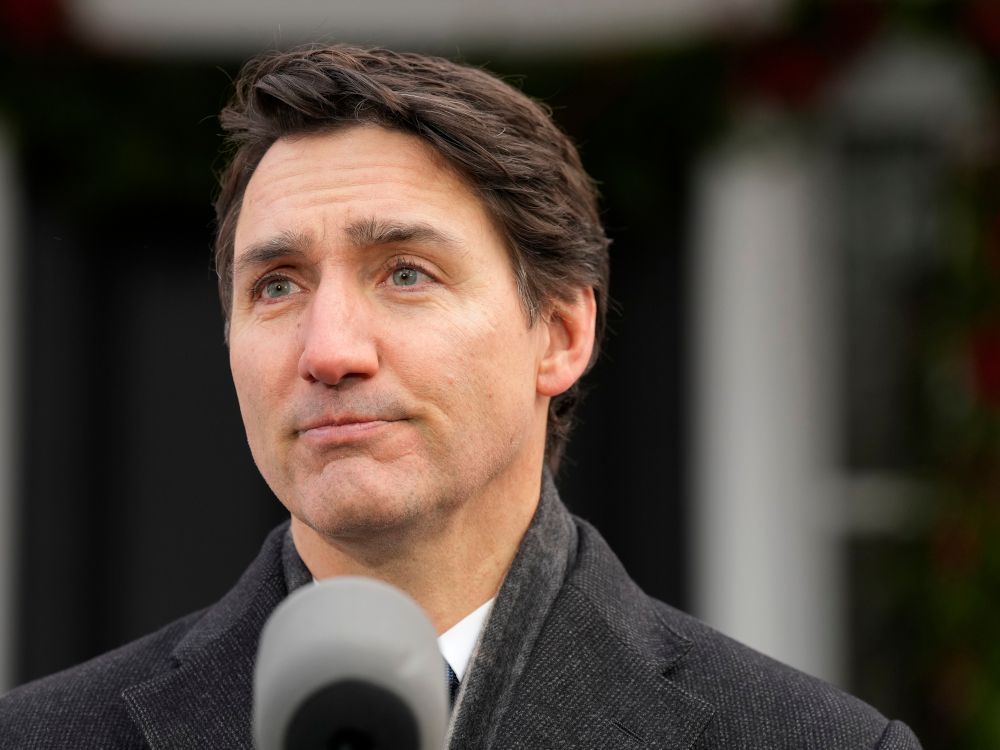New housing plan signals move to the political centre
Get the latest from Adam Zivo straight to your inbox
Published Dec 26, 2024 • Last updated 6 minutes ago • 4 minute read

This month, the Ontario Liberals released a new housing plan that calls for making significant tax cuts to spur development and homeownership. The plan is a productive addition to the national housing debate, even if many details remain unclear, and shows that party leader Bonnie Crombie is breaking from Trudeau’s legacy and driving the Liberal brand back towards the political centre. Yet, as Crombie opposed many of her newly-announced housing policies just two years ago, whether she will actually stick to these commitments remains unclear.
Advertisement 2
THIS CONTENT IS RESERVED FOR SUBSCRIBERS
Enjoy the latest local, national and international news.
- Exclusive articles by Conrad Black, Barbara Kay and others. Plus, special edition NP Platformed and First Reading newsletters and virtual events.
- Unlimited online access to National Post and 15 news sites with one account.
- National Post ePaper, an electronic replica of the print edition to view on any device, share and comment on.
- Daily puzzles including the New York Times Crossword.
- Support local journalism.
SUBSCRIBE FOR MORE ARTICLES
Enjoy the latest local, national and international news.
- Exclusive articles by Conrad Black, Barbara Kay and others. Plus, special edition NP Platformed and First Reading newsletters and virtual events.
- Unlimited online access to National Post and 15 news sites with one account.
- National Post ePaper, an electronic replica of the print edition to view on any device, share and comment on.
- Daily puzzles including the New York Times Crossword.
- Support local journalism.
REGISTER / SIGN IN TO UNLOCK MORE ARTICLES
Create an account or sign in to continue with your reading experience.
- Access articles from across Canada with one account.
- Share your thoughts and join the conversation in the comments.
- Enjoy additional articles per month.
- Get email updates from your favourite authors.
THIS ARTICLE IS FREE TO READ REGISTER TO UNLOCK.
Create an account or sign in to continue with your reading experience.
- Access articles from across Canada with one account
- Share your thoughts and join the conversation in the comments
- Enjoy additional articles per month
- Get email updates from your favourite authors
Article content
Arguably, the Ontario Liberals’ most significant proposal is the elimination of development charges for most new housing units. Introduced in 1989, the original purpose of development charges was to force developers to cover municipal infrastructure costs (i.e. water lines, sewage) associated with building new homes (aka: ”growth pays for growth”). Over time, though, municipalities abused this tool to pay for unrelated services that should have been financed through more equitable forms of taxation.
In practice, this has meant that new homebuyers, who tend to be younger Canadians or newcomers, have been squeezed dry so that established homeowners can enjoy slightly lower property taxes.
Between 1999 and 2024, inflation-adjusted development charges on two-bedroom Toronto condos skyrocketed from $2,265 to more than $80,000 — or more than 2,600 per cent. Similarly, development charges on new single family homes in Toronto nearly doubled between 2018 and 2023, from approximately $73,000 to $137,846. While Premier Dough Ford promised last year to phase out these charges, he backtracked this spring after facing pushback from municipal leaders.
By signing up you consent to receive the above newsletter from Postmedia Network Inc.
Article content
Advertisement 3
Article content
Taxation of new housing has gotten so out of hand that it now accounts for almost 36 per cent of the price of a new home in Ontario. This has made ownership less affordable, as inflated costs are predominantly absorbed by buyers, and exacerbated the province’s already-crippling housing shortage, as increased financial risks have made it harder for developers to launch new projects.
Eliminating development charges would not, by itself, solve the housing crisis, but it could immediately reduce the price of most new homes by roughly 10 per cent, providing some much needed relief for those priced out of the market. While this would leave municipalities with budget shortfalls, the Ontario Liberals argue that local governments could be compensated with new provincial funding, which would be paid for by eliminating wasteful spending elsewhere.
In a phone interview earlier this month, Bonnie noted that the total cost of her housing strategy would be, by her team’s estimation, $3.6 billion. She cited Doug Ford’s recently-announced rebate cheques, which are expected to cost $3 billion, and his proposed $50 billion tunnel under the highway 401 (which she described as “a fantasy tunnel to nowhere”), as evidence that there is room in the budget.
Advertisement 4
Article content
In addition to slashing development charges, the Liberals propose eliminating the provincial land transfer tax for non-profit homebuilders, which should incentivize more construction of affordable housing, as well as for first-time homebuyers and seniors looking to downsize.
Crombie’s team has also proposed a “phased-in” rent control system wherein new buildings would have uncontrolled rents for the first years of occupancy (the exact length of this grace period remains undetermined), and the party wants to hire more staff for the Landlord-Tenant Board, and implement some procedural reforms, to clear the current backlog of cases there.
Market-oriented housing experts throughout Canada have been calling for these kinds of reforms for years, and with good reason. Not only are they commonsense, they balance empathy with economic realism. So far, both liberals and conservatives have lauded the new housing plan, but skeptics should rightfully ask: can we trust that Crombie would actually see these promises through?
Crombie was mayor of Mississauga before becoming party leader, and, throughout her decade-long tenure in that role, vehemently opposed many of the housing policies she now champions (her hostility to new development even led some to call her “Queen NIMBY”). When Ford proposed eliminating development charges in 2022, for example, she was among his chief critics and claimed that “none of this is fair to our property taxpayers or our residents” as cutting these fees amounted to “funding developer profits.”
Advertisement 5
Article content
Crombie’s public criticisms seemed instrumental in forcing the Ford government to water down its housing reforms before Ontario’s last election. At the time housing advocates viewed her as obstructionist, but she has now taken some of those critics on as advisors.
While politicians should be commended for adjusting their beliefs when presented with new evidence, it will take time to trust that Crombie’s volte face on housing is genuine and not just opportunistic — two years is a very short period for any politician to change their policy positions so completely.
If in government, would she have the courage to stand up to municipal opponents who might, as she did very recently, lobby against much-needed reforms? Right now, it’s hard to say.
Also, as a third party, it might be easier for the Liberals to pledge reforms they may never get the chance to implement.
Ontario’s housing market is being asphyxiated by red tape and wilting under vampiric taxation. The province is building fewer homes now than it did in 1974, despite doubling in population. By comparison, per-capita housing construction is twice as high in Alberta and 1.6 times higher in British Columbia. While the Ford government has implemented some pro-housing reforms — e.g. pressuring Toronto into allowing more density around transit stations, and removing minimum parking requirements for transit-adjacent development — it is evident that these reforms don’t go far enough.
“The reality is other provinces have figured it out. They’re building and they’re eating our lunch, and our young, talented young people are leaving for B.C, Alberta and even Quebec,” Crombie said to me. “The price of a home in Toronto will buy you two homes in some cities in Alberta. So that is why people are leaving our province.”
Many details of the Ontario Liberals’ housing strategy remain private, but, even so, the Ford government should take notice. The province’s housing politics are becoming more competitive.
National Post
Article content
Get the latest from Adam Zivo straight to your inbox
.png)
 2 weeks ago
18
2 weeks ago
18


































 Bengali (BD) ·
Bengali (BD) ·  English (US) ·
English (US) ·